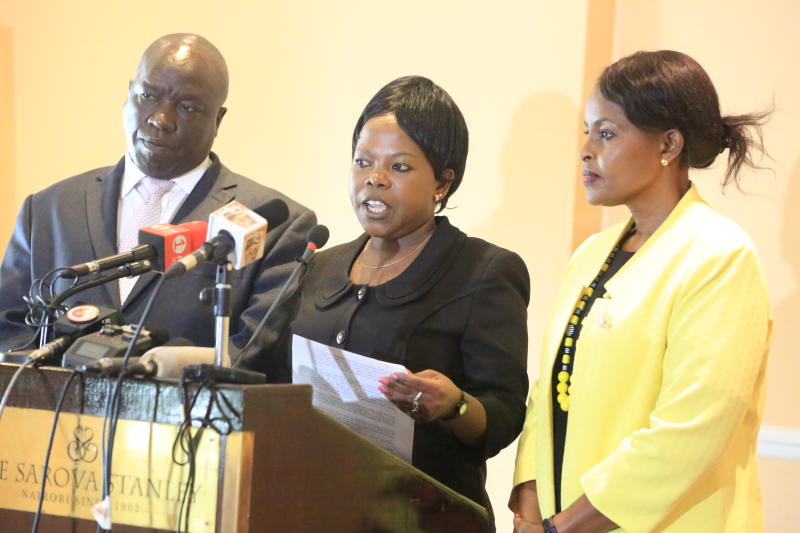×
The Standard e-Paper
Kenya’s Boldest Voice

On April 16, 2018, commissioners of the Independent Electoral and Boundaries Commission (IEBC) Margaret Mwachanya, Paul Kurgat and Vice Chair Consolata Nkatha made the decision to resign.
They made it clear that they were resigning because of poor leadership skills from their chairman, Wafula Chebukati.